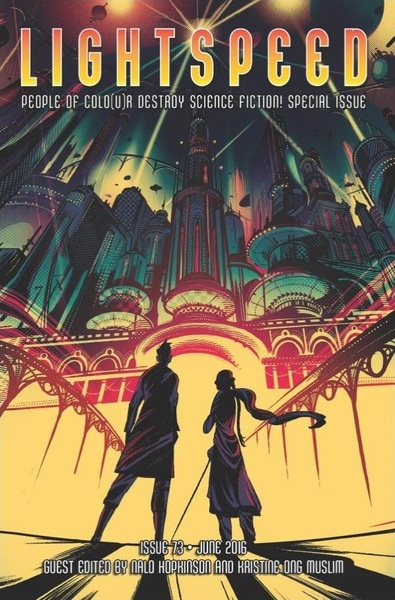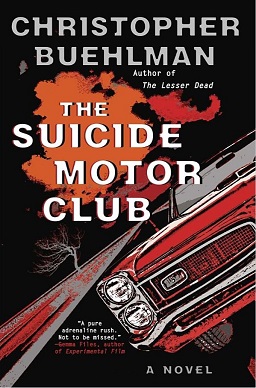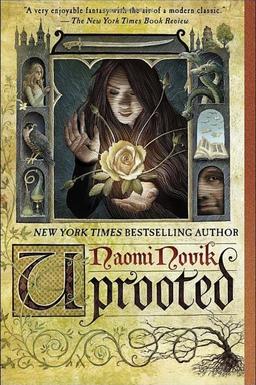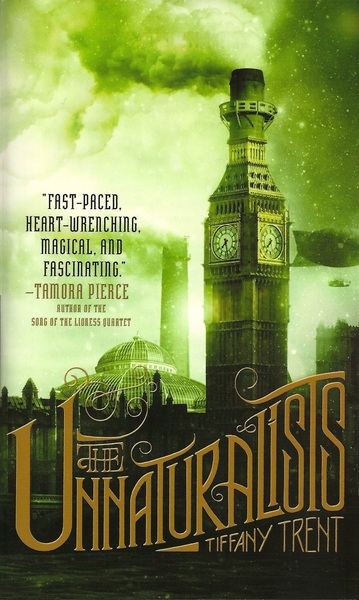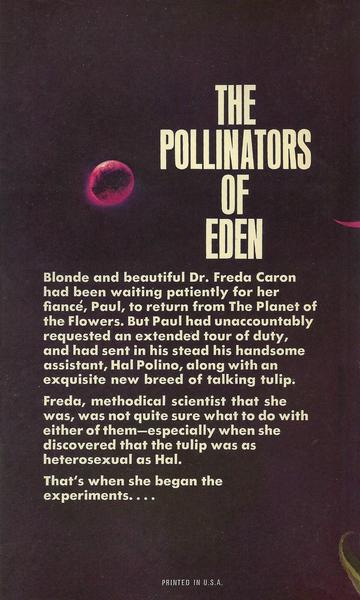Vintage Treasures: The Best Science Fiction of the Year #4, edited by Terry Carr
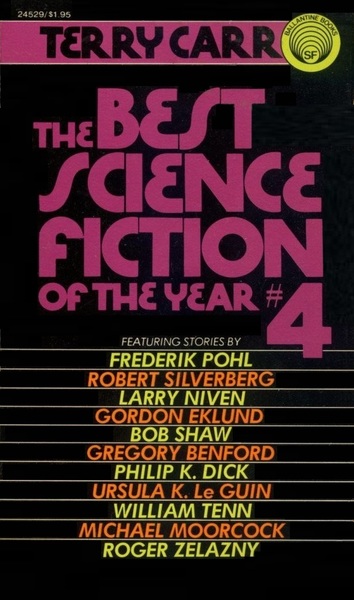 |
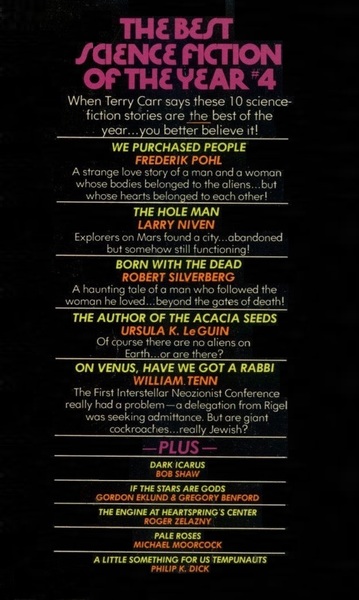 |
With all the Best of the Year volumes arriving over the past few months — from Jonathan Strahan, Rich Horton, Neil Clarke, and David Afsharirad, and more due next month from Gardner Dozois, Paula Guran, and others — it’s hard to remember those dark years in the mid-20th Century when there were only two or three.
Hard, but not impossible. Don Wollheim, Lester del Rey, and the great Terry Carr all had Best of the Year anthologies back in the mid-70s. I know because I bought and cherished them as they showed up in bookstores, starting around 1977 or so. I think my favorite editor of the batch was Terry Carr, who was already famous for his exemplary work at Ace at the time.
How good was Carr at extracting the cream of the crop from the digest magazines in the 70s? Depends who you ask of course, but in general Carr’s reputation was stellar. I’d read plenty of anthologies from the era, but I didn’t remember the magazines I read at the time well enough to say for certain.
However, I recently had the opportunity to do a little primary research of my own. I bought a collection of vintage Analog magazines from the early 70s, back when Ben Bova was editor, and I’ve spent a week of warm evenings on the porch with them, pretending I was Rich Horton.

